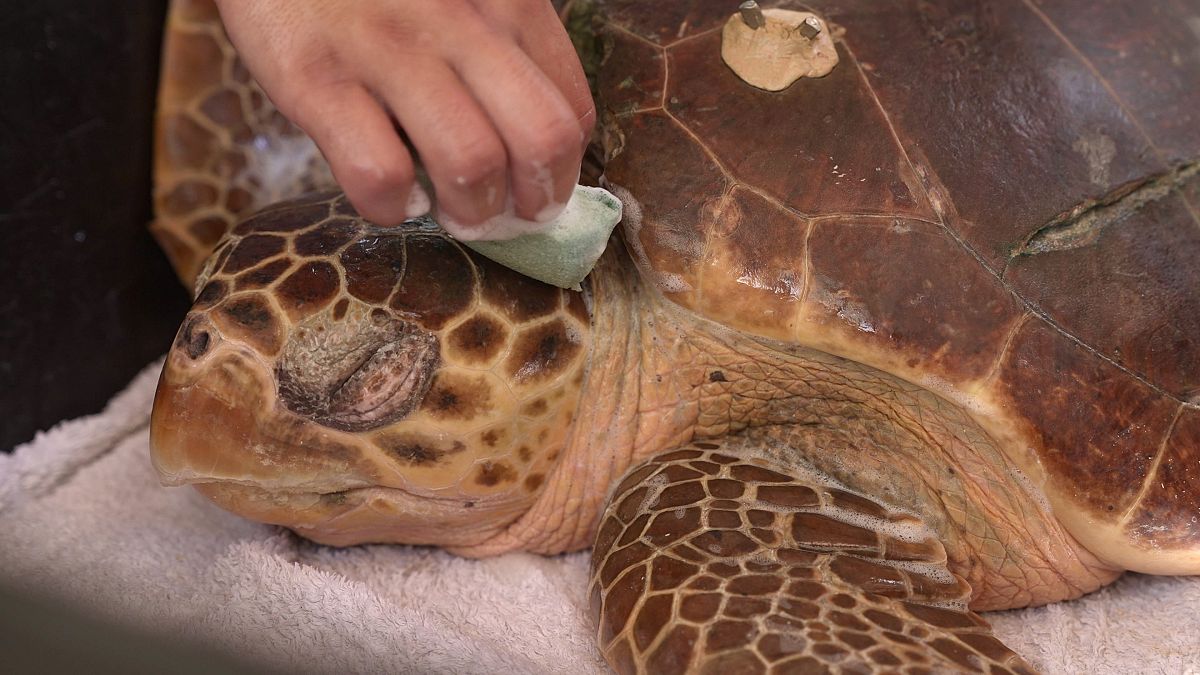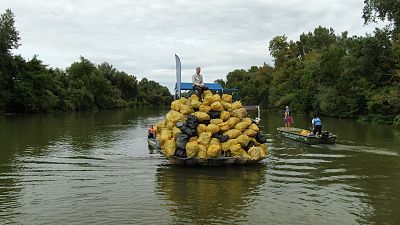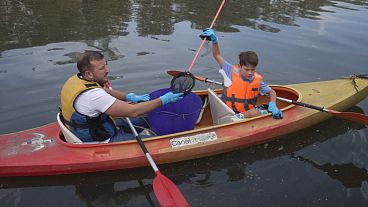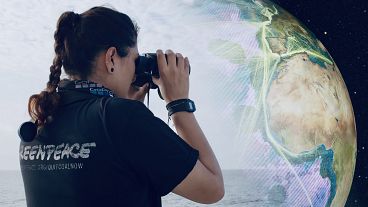Sea turtles are one of a number of slow-growing and long-living marine species whose survival is steadily being threatened. Since 1983, the Greek non-profit organisation ARCHELON has been working hard to help these animals. In Glyfada, we spoke with ARCHELON's Eirini Kasimati.
Sea turtles, found in oceans worldwide, are facing many threats from human activity.
We used to hunt them to eat - both their bodies and their eggs - and then we would use their shells for decoration.
Now, despite being a protected species, they remain in danger. Turtles get trapped in fishing nets and ingest harmful plastic bags, believing that they're tasty jellyfish.
Tourism harms their nesting areas, where hotels spring up along coastlines and besides the beaches they lay on.
And as climate change worsens and the sea levels rise and sand temperatures fluctuate this also affects their nesting patterns and their offspring's survival chances. It's because of all these challenges that all sea turtle species need conservation support.
Since 1983, the Greek charity ARCHELON has been working hard to help sea turtles. They keep an eye on beaches, protect nests, and run a special medical clinic in Glyfada, near Athens, where they care for injured turtles.
Eirini Kasimati, ARCHELON's Rescue Network and Rehabilitation Officer, spoke to Euronews about the important work they do and the need for more public awareness to protect these ancient sea species — and their entire marine environment.
"The ARCHELON Sea Turtle Rescue Centre started to operate in 1994 and since then we've received injured sea turtles from all over Greece. It is a whole operation: from the moment an animal is found sick or injured there are a lot of citizens involved who inform us. We have the local Coast Guard getting involved as well to help with the transportation of the animals here to Athens," she said.
"When the animal finally arrives here at the rescue centre, there is a long process of rehabilitation, most of the time. It depends on the type of injury that the animal has and on the condition that the animal is in. We're making sure that they get as well as fast as possible, basically. And the goal is, of course, to release them, to let them back into the wild, into the sea."
"The Rescue Centre is open to the public every single day and entrance is free. Anyone who wants to see our work, to learn about sea turtles and the work that ARCHELON is doing can come and visit us. This is very important because we can raise awareness. We can let people know about the threats that sea turtles face in the wild and teach them all the things that we can actually do, each one of us, to actually help sea turtles. We also encourage people to help the environment as a whole. Every little bit of an action that is helping the sea turtles can actually help the environment in general, which is very, very important."



